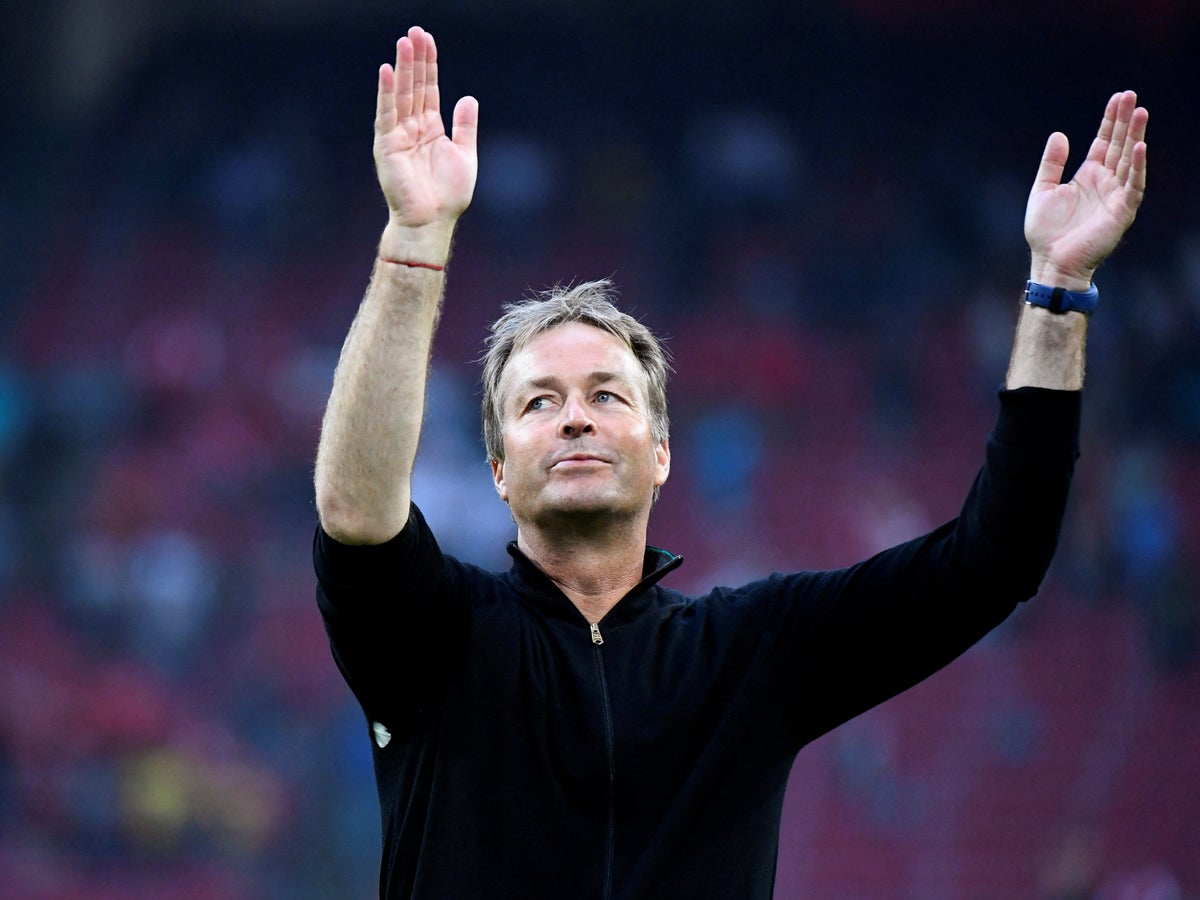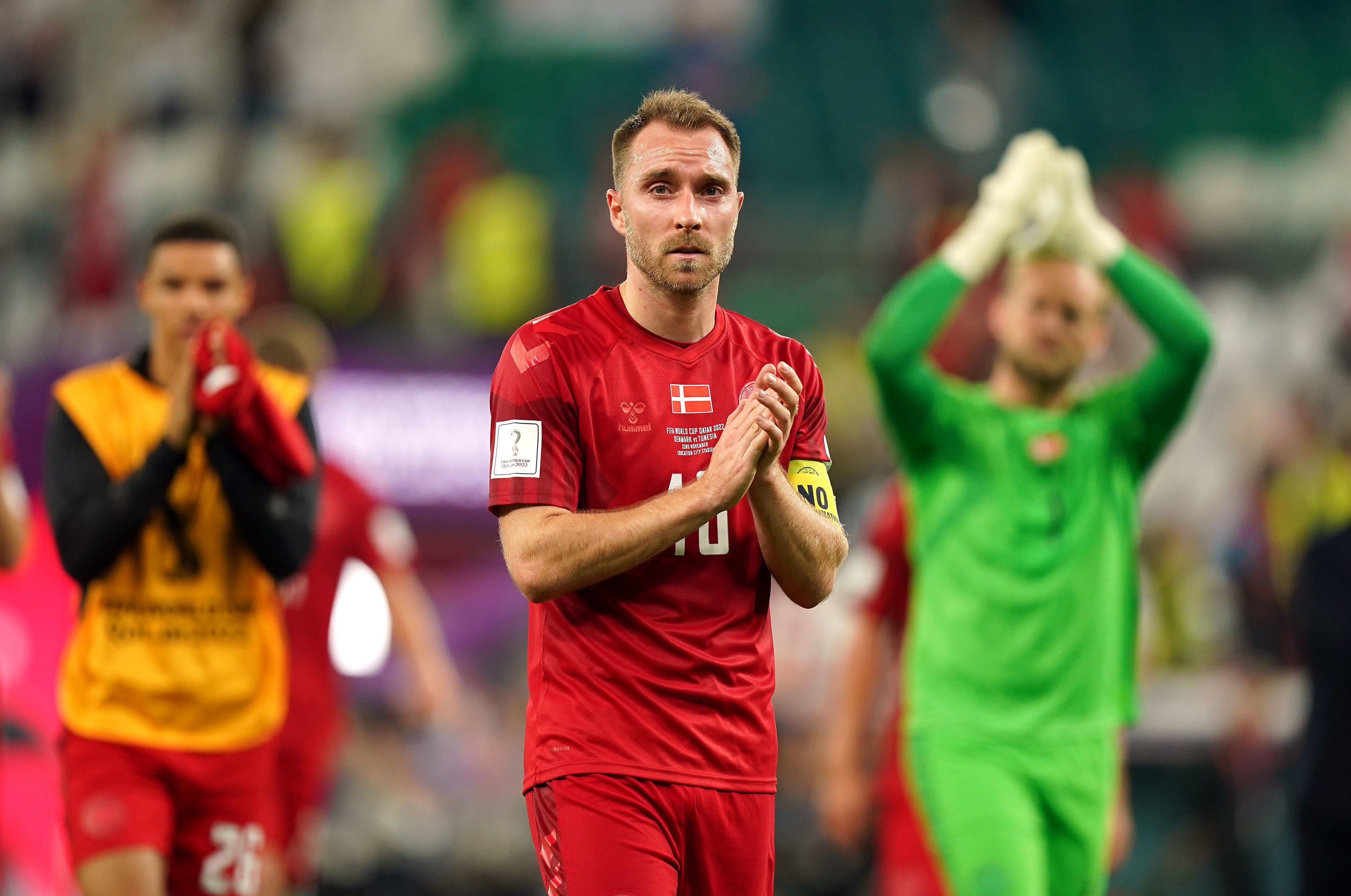
It could be a dark day for the dark horses. Denmark were tipped as potential World Cup winners. They came to Qatar ranked 10th in the world, with a 2022 double over France to their name, as Euro 2020 semi-finalists, with 23 wins in their last 32 games. They may go out at the first opportunity after finishing below Australia or Tunisia; maybe even both.
But, as Denmark know to their cost, a prowess in the European Championships is no guarantee of World Cup success. This has been billed as their best team in three decades. Yet the side who won Euro ’92 failed to qualify for the 1994 World Cup, just as Euro 2020 champions Italy are nowhere to be seen in Qatar.
Manager Kasper Hjulmand has seen parallels with the more recent past. “We had zero points after two games in the Euros so we still have hope,” he noted after defeat by France. Indeed, Denmark’s opening stalemate with Tunisia means they actually have more points than at this stage in Euro 2020. Yet one difference then was that there was the potential for third-place teams to sneak through; another was that the opening loss to Finland followed Christian Eriksen’s cardiac arrest; understandably, a shellshocked side had weightier matters on their mind.
That Eriksen is decorating the midfield again means this Denmark side possesses a playmaker who, suddenly, traumatically, that Denmark side lost. Hjulmand impressed with his empathetic leadership in Euro 2020. Once again, he is looking to harness and channel emotion. “It is a World Cup, so emotions are very high,” he said. “Football is wonderful and you can multiply your emotions by 10 with the fear of losing.”
In Demmark’s case, it may also be a fear of drawing. They were held by Australia in the 2018 World Cup; now a repeat will send Graham Arnold’s Socceroos through, unless Tunisia spring a surprise against the holders. “I don’t have the brain capacity to think about the match of Tunisia against France,” said Hjulmand.
If his attention is concentrated on his team, one department of it may command the most time. Denmark have a lone goal at this World Cup, a header from a centre back, Andreas Christensen, assisted by another, Joachim Andersen, from an Eriksen corner. Hjulmand has been forced to defend his attackers of late. Eriksen is by far the top scorer in this squad. If the actual forwards are not prolific, the Danish model has been to share the goals around. They had 18 scorers in 2021, seven of them at Euro 2020. That collective contribution took them a long way.
Indeed, four players, from defender Christensen to striker Yussuf Poulsen, found the net in the 4-1 demolition of Russia in their third group game then. Now Denmark have one goal from 21 shots, spread across 10 players. Mikkel Damsgaard, one of the breakout stars of Euro 2020 and their semi-final scorer, has not even had an effort. That Damsgaard and Kasper Dolberg are yet to score a club goal this season and Andreas Cornelius has just one suggests the World Cup has come at the wrong time for the Danish attackers.

And yet Hjulmand believes Denmark can draw on past memories of defining games. “The more experience you get in these events, from maybe feeling the pressure, you feel the proudness,” he said.
In Euro 2020, he showed he possesses that rare capacity to connect with people, providing a brand of management that stretched beyond tactics and training sessions, selection and substitutions. He feels international football does likewise; that if it is not necessarily the best, it is the most meaningful.
“I remember a discussion I was in years ago: ‘Is national team football on its way out?’” he recalled. “And I think every time there is a World Cup we see the big emotions and what football is really about: the big emotion of the game and how much it means for the players and people around the world, and that is emotions and that is the beauty of the World Cup.
“That is real football: It is for the children, for the fans, for the next generation. You see some games with less structure than normal, than in the Champions League, but here you see much bigger emotions.”
Win, lose or draw and those emotions will be apparent as Denmark’s destiny is decided. Their very presence at a World Cup some felt they could win forms part of a broader emotional journey.
Hjulmand explained: “It is an award for being able to dream big and work hard and go after your dreams. And, here you go, this is your dream. Let’s see what you can do. We will play our socks off and see what happens.”







